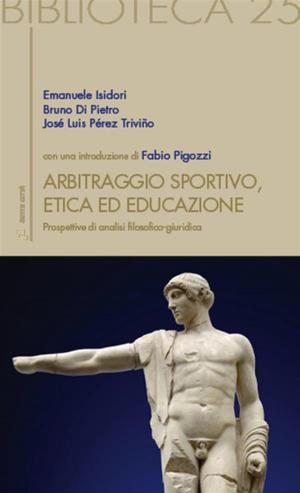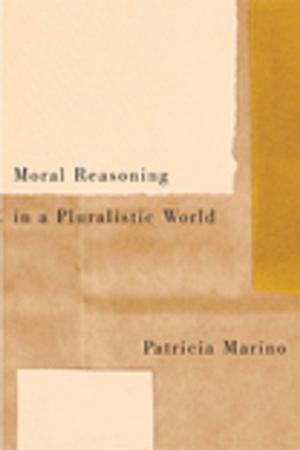古希臘正義觀──荷馬至亞里斯多德的倫理價值及政治理想
The Ancient Greek Concept of Justice: The Moral Values and Political Ideals from Homer to Aristotle
Nonfiction, Religion & Spirituality, Philosophy, Ethics & Moral Philosophy| Author: | 徐學庸 | ISBN: | 7346863501695 |
| Publisher: | 國立臺灣大學出版中心 | Publication: | July 20, 2016 |
| Imprint: | 國立臺灣大學出版中心 | Language: | Chinese |
| Author: | 徐學庸 |
| ISBN: | 7346863501695 |
| Publisher: | 國立臺灣大學出版中心 |
| Publication: | July 20, 2016 |
| Imprint: | 國立臺灣大學出版中心 |
| Language: | Chinese |
古希臘的正義觀如何與當代發生關聯?
「正義」又是如何從外在規範轉化為內在狀態,影響了兩千多年來的西方政治倫理思想?
西方當代正義思想,包括司法正義、程序正義、分配正義或矯正正義等概念,皆植基於其倫理學與政治哲學的文化傳統──古希臘。正義是西元前八世紀至四世紀,也就是荷馬至亞里斯多德的時代,最為核心的概念,要理解跟正義相關的任何議題,最適切的做法便是「回到原點」,從古希臘對正義的看法入手。
本書主張,古希臘正義概念的演變,顯現時人對其時代的反省及回應。儘管各時期的正義觀或有不同,但無論是人倫關係和諧、城邦運作有序、個人靈魂調和或是宇宙自然的運行調順,都展現了正義的核心意涵──秩序的維繫與恢復。從中也勾勒出正義,就其為德性(aretē)而言,在時代、文化和社會的遞移中,逐步由指涉行為的外在規範,轉化為關乎靈魂的內在概念,隨後再變回行為外在準則的過程。
書中涉及的文本涵納文學、戲劇及哲學,探討荷馬、赫希俄德、立法者與輓歌詩人、早期希臘哲學家、悲劇作家艾斯曲婁斯、柏拉圖及亞里斯多德等先賢的正義觀,希望帶領讀者從其優美的文字、動人的故事及崇高的理想中,反省我們的生命現況,妥善回應當前面對的倫理難題。
►閱讀〈古希臘正義觀:荷馬至亞里斯多德的倫理價值及政治理想〉書評於「哲學新媒體」
In Greek mythology, the goddess Dikē (Justice) is a daughter of Zeus and Themis. She has two sisters, Eunomia and Eirene, and together they are called the Horae and embody order and harmony. Since modern times, the physical embodiment of Justice has had three main characteristics: a sword in her right hand, scales in her left hand, and a blindfold over her eyes, representing her fairness in judgement. Contemporary concepts of justice, including judicial justice, procedural justice, distributive justice, and rectified justice, are all rooted in ancient Greek political and ethical philosophy. As a virtue, justice is closely related to the idea of order and harmony in ancient Greece. To understand justice, this book therefore returns to “the original position” to explore the ancient Greek concept of justice.
The ancient Greek notion of justice is commonly thought to have undergone a process of development; that is, it changed from a culture of shame to a culture of guilt. This book, however, challenges this traditional interpretation, arguing that different writers in different genres were all concerned with the times in which they lived and reacted to their environment through their work. Although different writers might understand justice differently, their discussion of the harmony of the ethical relationships among humans, the order of polis, the attunement of the inpidual soul, or even the orderly workings of the cosmos all illustrate the core idea of justice: the maintenance or recovery of an orderly state.
The discussions and arguments in this book touch on epic works, elegiac poetry, tragedy, and philosophical works and explore the notion of justice held by writers from the 8th century BC to the 4th century BC, such as Homer, Hesiod, Lycurgus, Solon, the elegiac poets, early Greek philosophers, Aeschylus, Plato, and Aristotle. Readers are urged, through the beautiful words and vivid stories, not only to grasp how the ancient Greeks understood the notion of justice and applied it to their own society, but also to reflect on their own lives and the moral and political problems we face today.
In our efforts to realize justice in our modern societies, what can we learn from the ancients? In the ancient Greek texts, we can find traces and suggestions of the elements of the successful practice of justice in moral and political life: procedural transparency, public participation, proper legislation, the principle of fairness, freedom of speech, the rule of law, the law-abidingness of citizens, and the punishment of wrongdoers.
(Resource: LANDSCAPE January 2017)
古希臘的正義觀如何與當代發生關聯?
「正義」又是如何從外在規範轉化為內在狀態,影響了兩千多年來的西方政治倫理思想?
西方當代正義思想,包括司法正義、程序正義、分配正義或矯正正義等概念,皆植基於其倫理學與政治哲學的文化傳統──古希臘。正義是西元前八世紀至四世紀,也就是荷馬至亞里斯多德的時代,最為核心的概念,要理解跟正義相關的任何議題,最適切的做法便是「回到原點」,從古希臘對正義的看法入手。
本書主張,古希臘正義概念的演變,顯現時人對其時代的反省及回應。儘管各時期的正義觀或有不同,但無論是人倫關係和諧、城邦運作有序、個人靈魂調和或是宇宙自然的運行調順,都展現了正義的核心意涵──秩序的維繫與恢復。從中也勾勒出正義,就其為德性(aretē)而言,在時代、文化和社會的遞移中,逐步由指涉行為的外在規範,轉化為關乎靈魂的內在概念,隨後再變回行為外在準則的過程。
書中涉及的文本涵納文學、戲劇及哲學,探討荷馬、赫希俄德、立法者與輓歌詩人、早期希臘哲學家、悲劇作家艾斯曲婁斯、柏拉圖及亞里斯多德等先賢的正義觀,希望帶領讀者從其優美的文字、動人的故事及崇高的理想中,反省我們的生命現況,妥善回應當前面對的倫理難題。
►閱讀〈古希臘正義觀:荷馬至亞里斯多德的倫理價值及政治理想〉書評於「哲學新媒體」
In Greek mythology, the goddess Dikē (Justice) is a daughter of Zeus and Themis. She has two sisters, Eunomia and Eirene, and together they are called the Horae and embody order and harmony. Since modern times, the physical embodiment of Justice has had three main characteristics: a sword in her right hand, scales in her left hand, and a blindfold over her eyes, representing her fairness in judgement. Contemporary concepts of justice, including judicial justice, procedural justice, distributive justice, and rectified justice, are all rooted in ancient Greek political and ethical philosophy. As a virtue, justice is closely related to the idea of order and harmony in ancient Greece. To understand justice, this book therefore returns to “the original position” to explore the ancient Greek concept of justice.
The ancient Greek notion of justice is commonly thought to have undergone a process of development; that is, it changed from a culture of shame to a culture of guilt. This book, however, challenges this traditional interpretation, arguing that different writers in different genres were all concerned with the times in which they lived and reacted to their environment through their work. Although different writers might understand justice differently, their discussion of the harmony of the ethical relationships among humans, the order of polis, the attunement of the inpidual soul, or even the orderly workings of the cosmos all illustrate the core idea of justice: the maintenance or recovery of an orderly state.
The discussions and arguments in this book touch on epic works, elegiac poetry, tragedy, and philosophical works and explore the notion of justice held by writers from the 8th century BC to the 4th century BC, such as Homer, Hesiod, Lycurgus, Solon, the elegiac poets, early Greek philosophers, Aeschylus, Plato, and Aristotle. Readers are urged, through the beautiful words and vivid stories, not only to grasp how the ancient Greeks understood the notion of justice and applied it to their own society, but also to reflect on their own lives and the moral and political problems we face today.
In our efforts to realize justice in our modern societies, what can we learn from the ancients? In the ancient Greek texts, we can find traces and suggestions of the elements of the successful practice of justice in moral and political life: procedural transparency, public participation, proper legislation, the principle of fairness, freedom of speech, the rule of law, the law-abidingness of citizens, and the punishment of wrongdoers.
(Resource: LANDSCAPE January 2017)















